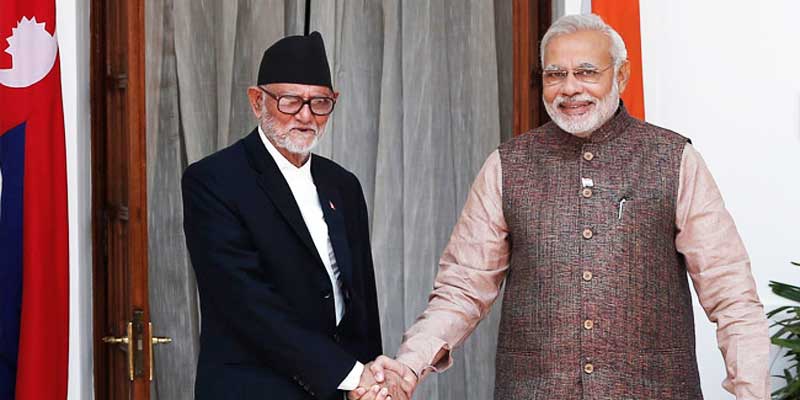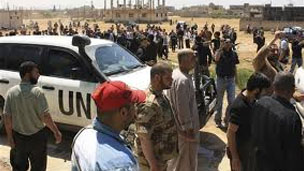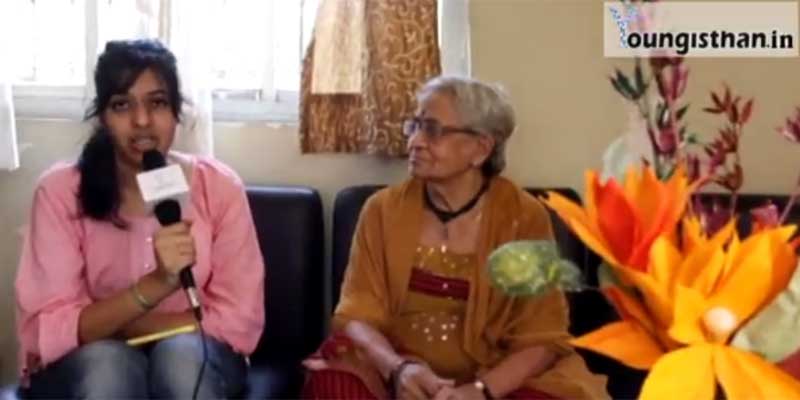Modi visit is an opportunity to reach out and assure time-bound delivery of infrastructure services. Announcing helping measures to address Nepal’s electricity demands will help him do this.
Even when Nepal and India shared open borders and claimed to have close ties, no Indian Prime Minister visited Nepal in past 17 years.
But change is about to happen.
Prime Minister Narendra Modi is on his way to the Himalayan country with his staff and Godson.
The Nepalese PM Sushil Koirala will break the protocol and receive his counterpart at the airport.
Modi is scheduled to hold talks with Koirala and address Nepal’s Parliament. The address to Parliament will be in Hindi. On Monday, he will call on President Ram Baran Yadav after offering puja at the Pashupatinath Temple and later meet political leaders and members of the business community.
India-Nepal ties have always been the strongest. From fighting for freedom together to Nepalis coming to India for studies, work, holidays, weddings, the two countries have been sharing an intimate space. But India is also blamed for being insensitive and for interfering in Nepal’s internal affairs.
Modi had promised improved relations with India’s smaller neighbours and invited their heads of government to his swearing-in ceremony. His visit offers an opportunity to focus on future potential and remove some of the accumulated cobwebs of mistrust between the two countries.
To lay the groundwork for his visit, External Affairs Minister Sushma Swaraj last week went to Kathmandu and signed a communique that mentions at least half a dozen water and power projects.
Controversies surrounding past treaties and deep-seated suspicions have held hostage mega-projects planned on Nepalese rivers that contribute up to 70% of water to India’s Ganges during dry season.
Nepal faces a chronic power shortage with daily power cuts up to 14 hours long. As per a Hindu report, its installed capacity is 600MW and it imports about 150 MW from India. The demand is growing by 20 per cent annually.
Ironically, Nepal has a hydel potential of 75,000 MW of which 40,000 MW has been assessed as technically feasible and economically viable. But the long tussle between the two countries over the 1954 Kosi Agreement and the 1959 Gandak Agreement has drastically minimized the progress on hydel cooperation.
Three mega-projects — Saptakosi with 5,000MW, Karnali-Chisapani with 11,000MW, and Pancheshwar with 6,500MW — have been languishing for 30 years.
When the hydel sector in Nepal was opened up to the private sector, Indian companies (including Tata Power, LANCO, GMR, Jindal, IL&FS, L&T, and GENCO) won 27 survey licences for projects ranging from 100 to 1,000 MW each, but not a single one is even close to beginning construction.
In the latest reflection of mistrust, Nepalese politics remains heated following a controversy over a hydropower development agreement recently proposed by Delhi. Nepali politicians from both ruling and opposition parties claimed that the proposal was aimed at securing India’s monopoly over Nepal’s water resources. However, Delhi has clarified that Kathmandu is free to amend and modify the proposed document.
Incidentally, India also has a major water shortage – a recent report by the Nature Conservancy shows that five of the 20 most water-stressed cities in the world are in India and the capital, Delhi, is second on the list.
Satellite images have shown that India’s underground water tables have depleted to dangerously low levels. Experts say given all this, India’s main interest is securing water supply, unlike Nepal’s hydropower ambitions.
Modi visit is an opportunity to reach out and assure time-bound delivery of infrastructure services. Announcing helping measures to address Nepal’s electricity demands will help him do this. But the different needs of the two countries mean there will have to be a give and take between them, something that has not happened all these years.
How will Modi’s new diplomacy address all concerns is yet to be seen.





